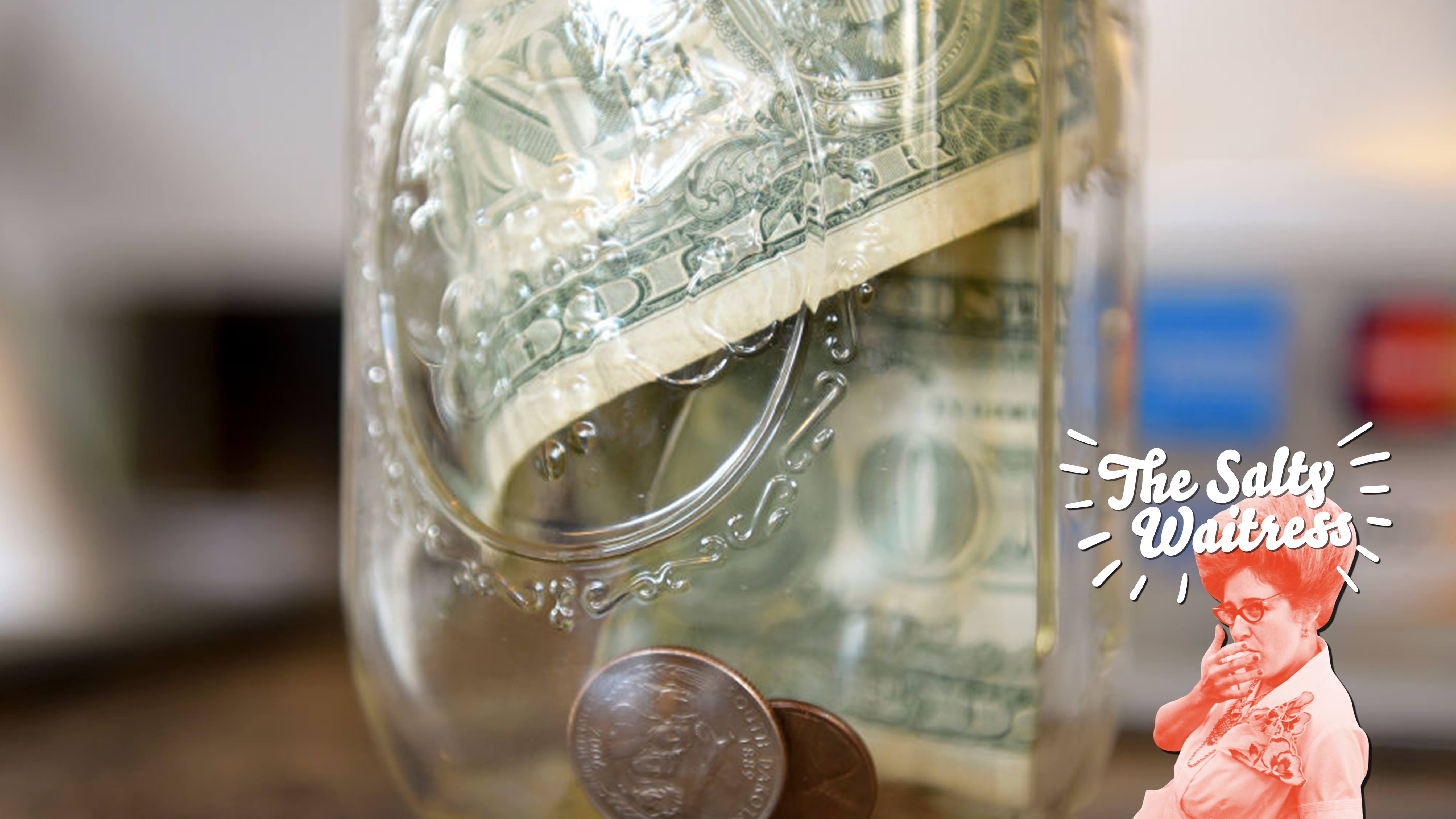Ask The Salty Waitress: All These Tipping Systems Are Making My Head Spin
Tip pooling, tipping out, tip jars—when did tipping get so complicated?
Got a question about dining out etiquette? Or just a general question about life we can help you with? Email us: salty@thetakeout.com.
Hi Salty,
I'm all in on proper tipping etiquette, but I've never worked in a restaurant setting, so I'm admittedly confused by the actual mechanics of the tip once it leaves my wallet. Does the server report their tips to management? Share tips with the dishwasher? Does it just depend on the restaurant? I've had server friends pocket their tips, but I've also heard of "tip pooling" and "tipping out." I guess my question is this: Can you explain the different restaurant tipping systems one might encounter behind the scenes?
—Numbers Game
I'm not surprised by your confusion, doll. You see a server slip those sweet singles into their waistband, there's no telling where that tip's heading. In the old days, a server might directly pocket their tips to make up for the fact that, unlike back-of-house staff like dishwashers and cooks, many servers don't make minimum wage and have to supplement their income with tips. But as more and more restaurants do away with tips or shift to tip-pooling systems (more on that later), it's hard to know exactly where your tip dollars go. Here, toots—take a seat while I practice my flatware roll-up technique. I'll explain.
Tip pooling
As you probably already know, some states require employers to pay all employees—tipped or non-tipped—the federal minimum wage. But in other states, servers receive only $2.13 an hour, the federal minimum wage for tipped workers, under the assumption that their tips will make up the difference.
This puts some servers in a tough spot. Customers are like clogs: Some put a little extra pep in your step, and others drag you down and run you ragged until your sweet piggies are covered in blisters. In other words, not all tippers are created equal. With this in mind, a lot of restaurants are shifting to either non-tipped service, which usually comes with an extra "administrative fee" (see below for more info on that), or a tip-pooling system to even things out. That means servers will pool all their tips after a shift, then divide the total evenly among themselves and, oftentimes, back-of-house staff as well. That means if Jenny's scoring big-time tips and I'm smiling so hard my tooth chips—only to score a measly 75 cents—things are gonna even out in the end. Make sense?
Tipping out
Tip pooling means everybody's in this together. Tipping out is a little different, and it's something you'll often see at higher-end restaurants where servers are making major, major simoleons. If a restaurant implements a "tipping out" strategy, it means that each server will give a certain percentage of their tips to other staffers. So if I'm raking in $250 a night serving up tiramisu to people entirely clad in khaki, I'm gonna pay it forward to my less-fortunate back-of-house friends—say, 5% to the dishwashers, 10% to the line cooks.
All in all, I'm probably not gonna tip out more than 30%, so everyone's left with a little cabbage in their pocket. Now, some people have a problem with this—there've even been lawsuits over it—but the way I see it, we're all on our feet all day, and it takes a team to make the steaks go 'round.
Built-in fees
We've talked about this before, but let's do a quick refresh. These days, you'll see a lot of independent restaurants doing away with tipping entirely, replacing it with built-in "administrative fees" or "employee benefit surcharges." This is usually a good thing, since employers can then take that money and turn it into tangible benefits—healthcare, baby!—for shift workers.
Of course, this fee can also be a little sneaky; it's not unheard of for restaurant owners to shaft the staff and put the fee toward rising ingredient prices instead. But overall, if you see a line on your check that reads "employee benefits," it's probably a positive. That said, you can always leave a few extra singles to make your server's day.
What if there’s just a tip jar?
In my experience, if you're at an establishment with a tip jar—a coffee shop or sandwich joint—and there's more than one person behind the counter, they're using that jar as a tipping pool. That means they'll likely dump it out to split the tips evenly at the end of their shift.
